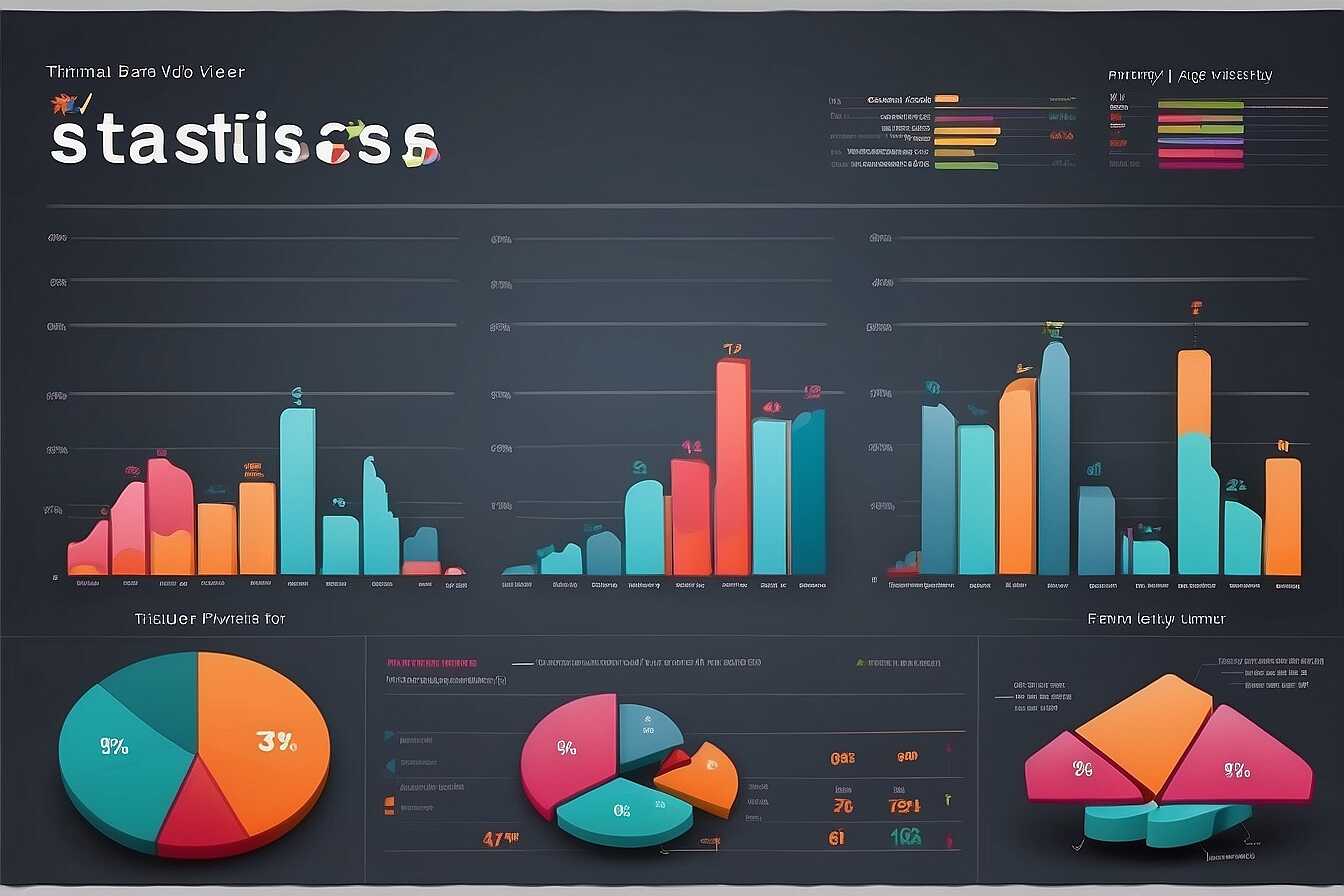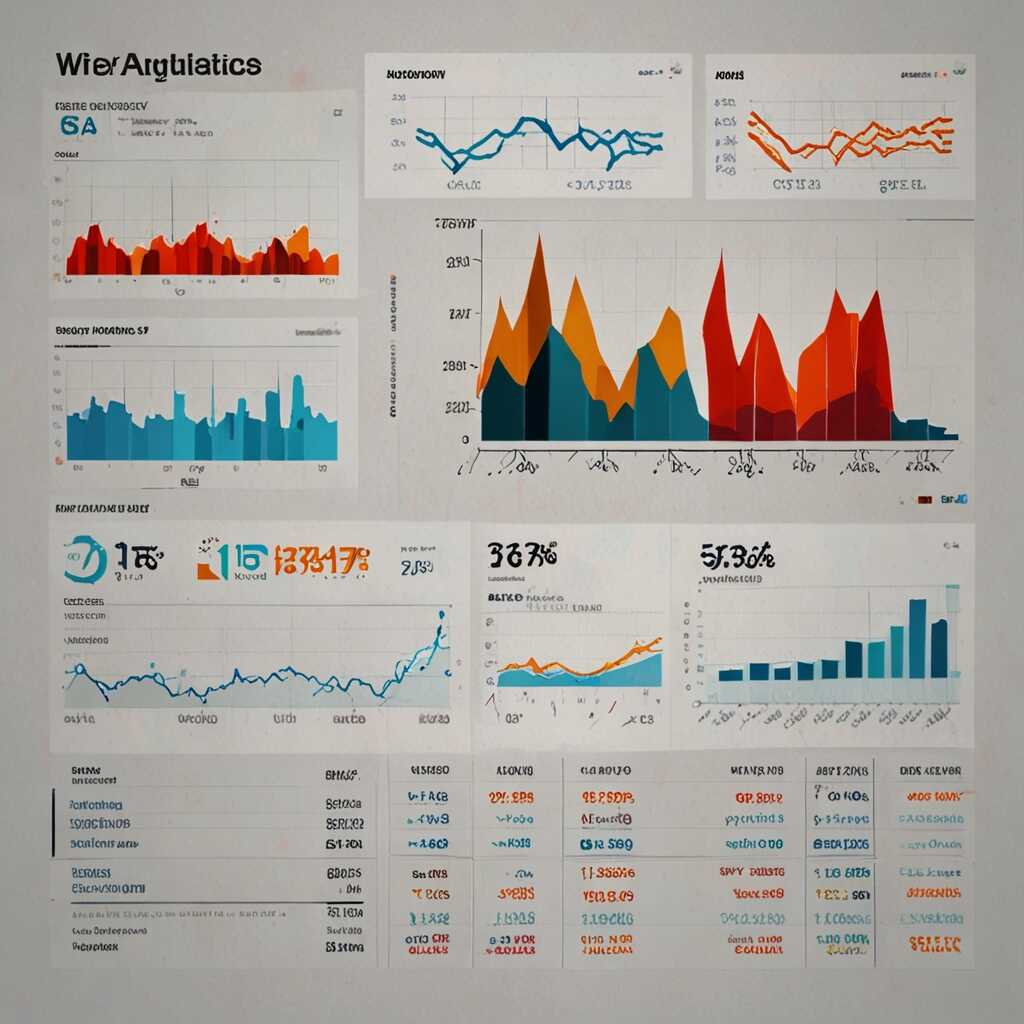Search engines rank websites in different industries using algorithms that analyze numerous factors to determine relevance and authority. Understanding these algorithms can help businesses optimize their online presence and improve search rankings. At Metrics Rule, we leverage our technical expertise in SEO to assist various sectors in navigating these complex ranking systems and enhance their visibility. By applying effective strategies tailored to industry-specific needs, we empower our clients to achieve better search engine results and drive meaningful traffic to their websites.
Basics of Search Engine Algorithms and Their Significance
Search engine algorithms evaluate and rank websites based on various factors designed to enhance user experience. These algorithms utilize complex testing and data analysis to determine the relevance and reliability of content. Understanding how these algorithms function is essential for developing effective SEO strategies tailored to specific industries. For instance, keywords play a critical role; they help search engines gauge what users are searching for and match this to the most relevant content. Factors such as site speed, mobile optimization, and content quality are also pivotal in securing a better ranking. Familiarizing yourself with these ranking factors can greatly improve your digital presence and strategies.
Understanding Industry-Specific Ranking Factors
Each industry may have unique ranking factors that search engines prioritize. For example, e-commerce sites often benefit from technology that enhances product visibility through robust keyword research and user experience optimization. This includes aspects like quick loading times, effective use of sitemaps, and structured data implementation. Studies show that websites in competitive sectors face different challenges; therefore, specialized SEO strategies provide solutions tailored to their needs. Local stores may need to focus on local search optimization, whereas large e-commerce platforms must enhance their website performance and indexing capabilities to stay ahead. Metrics Rule in Vancouver provides expert insights into these specialized strategies, helping businesses optimize their online performance efficiently.
Diverse Ranking Factors Across Various Industry Websites
Key ranking factors vary significantly across industry websites. While content relevance is crucial for all sectors, its application differs by industry. For instance, e-commerce sites highly prioritize product descriptions and user reviews, while service-based industries focus on testimonials and service transparency. Additionally, site speed is essential across all sectors, with retail and travel industries needing exceptionally fast load times to enhance user experience. User experience, determined by site navigation and mobile-friendliness, is crucial too, as Google emphasizes these in its ranking algorithms. Each industry presents unique challenges and opportunities in these areas, which effectively affect their SERP performance.
Industry-Specific Considerations for SEO
When optimizing for SEO, it’s crucial to acknowledge industry-specific considerations such as customer behavior, content type, and nature of services. For instance, the finance industry prioritizes security features and factual accuracy, while the entertainment industry focuses on engagement and shareable content. E-commerce websites must ensure easy navigation and fast checkout processes, enhancing user efficiency. Data shows that sites with fast load times experience lower bounce rates, crucial for success in competitive niches. Knowing these nuances allows professionals in different sectors to create targeted strategies, ensuring they meet the specific needs of their audience while effectively enhancing their visibility in search engines.

Impact of Content Quality and Relevance on Rankings
Content quality significantly impacts search engine rankings. High-quality content attracts users, leading to longer dwell times and lower bounce rates. This signals to search engines like Google that your site is valuable, improving rankings. Creating content that aligns with user intent involves understanding what your audience seeks. For instance, providing useful information helps ensure your content meets their needs, thereby enhancing SEO performance. Factors such as keyword optimization, using data-driven insights, and ensuring content relevance are also crucial for achieving better search engine rankings.
Best Practices for Creating High-Quality Content
When developing content, focus on crafting engaging, informative, and relevant material tailored to your audience’s preferences. Use keyword research to identify popular search terms in your industry. Incorporating these keywords naturally throughout your content improves your chances of ranking higher. Additionally, keep your content structured and easy to read. This includes using headings, bullet points, and short paragraphs. Regularly updating content to reflect the latest trends and information also enhances its quality and relevance, thereby increasing its effectiveness in attracting organic traffic.
Key Statistical Insights on Search Engine Functionality
- 75% of users never scroll past the first page of search results.
- About 94% of all web traffic originates from search engines.
- Approximately 60% of clicks go to the top three search results.
- Search engines consider over 200 factors when ranking websites.
- SEO can increase web traffic by as much as 100% for optimized pages.
- 85% of search engine users rely on local results for nearby services.
- Content freshening can boost ranking impacts by 30% or more.

Essential Technical SEO Methods for Enhanced Online Presence
Key technical SEO methods significantly enhance website visibility and indexing. Important practices include optimizing site architecture, ensuring mobile responsiveness, and improving page load speed. Site architecture provides a clear structure that helps search engines understand content hierarchy. Mobile responsiveness is essential for engaging users across devices and affects ranking metrics on Google and Bing. Research indicates that a page load speed of under 3 seconds is effective for SEO performance in 2025. These elements are crucial for various industries, enabling websites to be easily crawled and indexed, ultimately improving search rankings.
Optimizing Site Architecture for Maximum Efficiency
Optimizing site architecture is vital for a successful online presence. A well-organized site architecture enhances user experience by enabling easy navigation. In technical SEO, this includes using keywords in URL structures, creating a logical internal linking structure, and ensuring an XML sitemap is properly formatted. An XML sitemap helps search engines like Google understand the relationship between your site’s pages, ensuring efficient crawling and indexing. For e-commerce websites, clear categorization and product pages allow for improved user experiences and higher conversion rates. By focusing on these aspects, you can help enhance your site’s reliability and visibility.

Significance of Backlink Strategies in Competitive Industries
Backlinks play a vital role in determining search rankings across different industries by signaling credibility and authority to search engines. In competitive sectors, such as e-commerce and the tech industry, the number and quality of backlinks directly impact visibility. For example, a website with high-quality backlinks can rank better than competitors with lower backlink quality and quantity. The importance of backlinks can vary between industries; e-commerce sites often require a diverse backlink profile, while local services may benefit from high-quality, locally relevant sites. Effective link-building strategies tailored to each niche can enhance keyword effectiveness and improve search performance.
Industry-Specific Link-Building Techniques for Optimal Results
Effective link-building techniques are essential for maximizing search rankings in niche markets, such as e-commerce and local services. For e-commerce, building relationships with industry influencers and bloggers can lead to valuable product reviews and high-quality backlinks. Creating shareable content, such as infographics and instructional videos, also attracts organic backlinks. In contrast, local businesses should focus on getting listed in local directories and networking with community websites to earn relevant backlinks. Leveraging local content marketing and partnerships helps ensure a steady stream of reliable backlinks. Combining these techniques can deliver measurable results and enhance search visibility.
Advantages of Understanding Ranking Mechanisms
- Improved visibility boosts your website’s traffic significantly.
- Effective tactics enhance user experience on your site.
- Analytics help businesses tailor their online strategies better.
- Ranking knowledge leads to more efficient resource allocation.
- Higher rankings build credibility and trust with users.
- Data-driven decisions support better content creation.
- Understanding algorithms offers a competitive edge in the market.

Leveraging Competitor Analysis for SEO Insights
To effectively identify and analyze competitors in your industry, start by selecting dedicated SEO tools like SEMrush, Ahrefs, or Moz. Use these tools to gather data on competitor keywords, backlink profiles, and overall website performance. Look for patterns in their strategies, such as commonly used keywords or on-page optimization techniques. This information can help you spot gaps in your own SEO strategy. Key performance metrics to compare include organic traffic, keyword rankings, page load speed, and bounce rates, especially when evaluating the effectiveness of competitors in sectors like e-commerce, local businesses, or tech. Ideally, analyze at least five to ten competitors to gain a reliable understanding of market dynamics and identify both strengths and weaknesses in their SEO approaches.
Understanding Key Metrics for Effective Competitor Evaluation
When analyzing key metrics for competitor evaluation, focus on several critical areas. Organic search traffic provides insights into how well a competitor is attracting visitors. Look at their keyword rankings to determine which keywords drive their traffic. Analyze their backlink profiles to understand the quality and quantity of links they have. Evaluate on-page factors like website speed and mobile responsiveness, which directly influence SEO performance. One essential aspect is to conduct a comparison based on content quality and user engagement metrics, such as average session duration and pages per session. These key metrics create a comprehensive picture of a competitor’s SEO efficiency, helping to inform your strategy and fill any keyword gaps in your approach.
User Behavior and Engagement Metrics Shaping Rankings
User engagement metrics significantly impact search engine rankings by influencing how search engines perceive website quality. Metrics like bounce rate and session duration are critical indicators of user experience. A low bounce rate informs search engines that visitors find the content relevant, which helps improve rankings. Additionally, session duration indicates how engaged users are with your website content. For industries such as e-commerce, enhancing user experience is essential, as it leads to better conversion rates. In 2025, maintaining a bounce rate below 40% is often deemed indicative of a successful user experience.
Critical User Engagement Metrics to Monitor for SEO Success
Monitoring user engagement metrics is vital for SEO success and overall website performance. Analyzing metrics such as bounce rate, session duration, pages per session, and returning visitors offers insights into user preferences and behavior. For example, a high bounce rate may suggest that the content is not aligned with user expectations. On the other hand, improved session duration indicates that the website effectively delivers value to users. Metrics derived from Google Analytics help businesses identify areas needing improvement, ensuring an enhanced user experience, which in turn boosts search engine rankings. Metrics Rule in Vancouver provides expert analysis, enabling your website to rank competitively.
Leading Brands and Their Market Positioning
- Google: Known for its vast algorithm updates; fast response to user searches.
- Bing: Offers unique features like “Bing Visual Search”; less market dominance.
- Yahoo: Integrates news and content; aging interface can deter users.
- DuckDuckGo: Focuses on user privacy; may lack certain personalized search features.
- Yelp: Essential for local business discovery; relies heavily on user reviews.
- TripAdvisor: Valuable for travel-related searches; may have outdated business data.
- E-commerce Platforms: Utilize SEO effectively to drive sales and conversions.
Emerging Trends in Search Engine Algorithms and Rankings
Recent developments in search engine algorithms show significant changes that will influence rankings across diverse industries. Major trends include the growing importance of artificial intelligence in search queries and user experience. Companies like Google and Bing are focusing on improving efficiency and reliability in search results. For example, algorithms are evolving to deliver more tailored search experiences, ensuring each user receives accurate and relevant information based on their behavior. Furthermore, it is estimated that by 2025, on-page SEO factors are expected to impact ranking results by at least 70%. This means that effectively optimizing content and structure will be essential for maintaining visibility in search results.
Critical Factors Shaping Future SEO Practices
Several critical factors are shaping future SEO practices, with emerging trends in algorithms at the forefront. AI technologies are designed to enhance how search engines evaluate website content, significantly improving user-friendliness and relevance. With machine learning, search engines continuously test and refine their results based on user interactions. The integration of structured data, like schema markup, is also increasingly important. This helps search engines better understand page content and context, leading to enhanced crawling and indexing efficiency. In Vancouver, where digital marketing heavily relies on local SEO tactics, businesses must adapt to these trends to stay competitive in search engine rankings.
